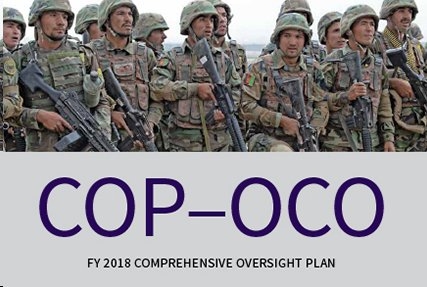Foreign soldiers come to U.S. for training, but go AWOL without consequences
Weaknesses exist in Department of State (State) Antiterrorism Assistance (ATA) program data and oversight of participants, including those trained in the United States. ATA course and participant data are incomplete and sometimes inaccurate, despite ATA’s procedures for the collection of those data, according to a report released by the U.S. Congress’ General Accountability Office (GAO).
 ATA officials told GAO that procedures were not always followed. Without ensuring the implementation of procedures to collect complete and accurate program data, officials may not be able to accurately report the number of participants trained, in line with program performance indicators. Among participants trained in the United States since 2012, ATA has documented participants’ unauthorized departures from ATA activities and provided related information to the Department of Homeland Security (DHS) for follow-up, especially those coming from Afghanistan.
ATA officials told GAO that procedures were not always followed. Without ensuring the implementation of procedures to collect complete and accurate program data, officials may not be able to accurately report the number of participants trained, in line with program performance indicators. Among participants trained in the United States since 2012, ATA has documented participants’ unauthorized departures from ATA activities and provided related information to the Department of Homeland Security (DHS) for follow-up, especially those coming from Afghanistan.
The short memories of the nation’s politicians and news media must be educated in the dangers posed by Afghan or other nations’ trainees entering the United States. “Beltway” insiders need to be reminded that a similar program during President George W. Bush’s administration that trained Mexican police and soldiers backfired and helped create the most dangerous of Mexico’s drug trafficking cartels, Los Zetas.
Los Zetas members include soldiers and cops who were actually trained in special operations by the United States military establishment, arguably helping to make Los Zetas the fiercest organized crime gang in the Western Hemisphere.
Lack of Communication
In a report on ABC TV News; an official said that if any of the individuals applies for asylum in the U.S.; that is done through United States Citizenship and Immigration Services which often doesn’t communicate with ICE, according to ICE officials.
Since 2005, 152 Afghan trainees have gone AWOL (Away Without Leave) and 83 of them fled the country successfully often traveling to Canada or Mexico. Only 27 have been arrested or removed by federal law enforcement.
In addition, ATA recently identified 20 ATA participants trained in fiscal years 2012 through 2016 for whom departure from the United States following the completion of training is unconfirmed. ATA officials told GAO there is no formal process to confirm participants’ return to their home countries following the completion of training.
Without such a process, ATA may not be able to assess the extent to which it is using training in line with program goals. Further, State may not be able to provide information to DHS about participants whose failure to depart may warrant enforcement action.

State and the contractors who implement ATA training have taken steps to ensure that facilities used for domestic training align with applicable security requirements. State’s ATA training contract requires the secure storage of weapons and explosives and that the contractors have the relevant federal, state, and local permits. State reports overseeing the contractors through the receipt of copies of relevant licenses such as those required for possessing explosives; visits to the training facilities, including surveys examining storage security; and frequent meetings.
Both of the domestic tactical training facilities that GAO visited had relevant licenses and, during site visits, GAO observed some suggested security measures, including fences, secured gates, and security patrols.
According to a press statement from Sen. Chuck Grassley, the Senate Judiciary Committee, is pressing the State Department and the Department of Homeland Security to explain lapses in the screening and tracking of Afghan military trainees in the United States after an inspector general report shows a number went missing, with 13 trainees still unaccounted for.
“There are so many problems here, it’s hard to know where to start,” Grassley said. “This is bad for national security, bad for Afghan military readiness, and bad for U.S. taxpayers. If the U.S. government can’t keep tabs on foreign military trainees, maybe the training shouldn’t take place in the United States. The report also shines new light on the old problem of agency failures to communicate with each other, even under the same departmental umbrella. They have to do a better job of that, especially those fulfilling the no. 1 responsibility of the federal government of protecting the homeland. That’s why I’m writing to press the relevant agencies for answers.”
The GAO recommended that the Secretary of State should ensure implementation of its data collection procedures and establish a process to confirm and document participants’ return to their home countries. The State Department brass agreed with both recommendations.


